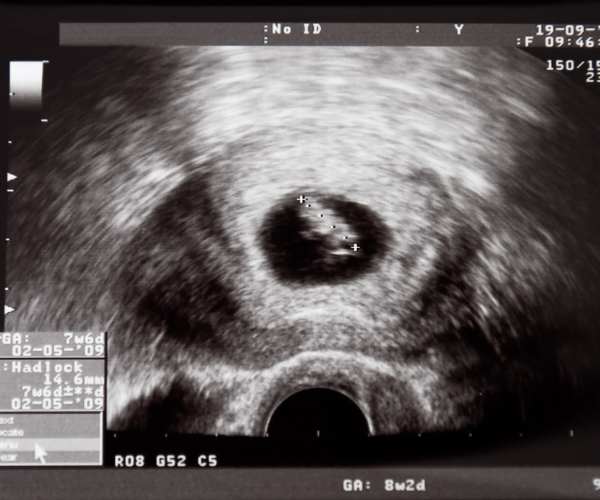Pregnancy is without doubt one of the most extraordinary processes in a woman’s life, and every trimester comes with new changes – large or small. The journey starts with such symptoms as the absence of menstruation or feeling sick in the mornings; the first sign most women notice. To help you cope with these changes and feel more confident about the fact that certain things are normal at this or that age, we bring you the seven stages and their most significant markers.
They include nausea and vomiting in the first quarter, completely different from the general symptoms of the second quarter, up to the changes in weight bearing that the third quarter demands. Understanding what to expect makes this process seem more bearable and assists you through happiness and difficulties.

In this guide, you’ll learn about the general signs associated with pregnancy divided by the trimesters, including physical, psychological, and mental signs that affect pregnant women. Pregnancy is a developmental process that involves growth in all four dimensions: the physical, psychological, emotional, and mental. This is the time to pay special attention to one’s needs, regulating own emotions, and building up personal resources.
Fun Fact
It might interest you to know that not less than 70 percent of women going through their first trimester are likely to suffer morning sickness. But while the term used for this is “morning sickness”, vomiting and nausea can occur at any time of the day and impact a woman’s daily activities.
If you are just starting here or just interested, let us explore each of the phases, moving through them and what each of the symptoms means for you and your baby.
Details about Every Step
Symptoms
The symptoms of pregnancy also differ from one woman to another and more so the intensity of the symptoms. Few of the earliest signs include nausea, morning sickness, and tiredness, which start manifesting at the beginning of the second week, or even before, at the earliest sign of pregnancy.
During the first three weeks of pregnancy, nausea, vomiting, and tiredness are pertinent due to an increase in hCG and other hormones in preparation for embryonic implantation. This hormone, working with progesterone and estrogen, helps to prepare the body for pregnancy, affects energy levels, and can cause waves of nausea.
Week by week, new physical changes may appear as the pregnancy progresses. In the second trimester, blood flow to the baby and the body as a whole rises, while slight swelling or round ligament pain might be expected because the uterus is enlarging. It is also common for women to begin noticing an increase in energy; indeed, they are often glad that such signs as early fatigue have disappeared.
In the final trimester of pregnancy, the woman experiences increased weight, which can cause back ache, sleeping problems, and leg and ankle swelling. Every sign is formed for a reason, as the body prepares for labor, ensuring the convenience of both the mother and baby.
Specialty
Like any other illness, pregnancy varies in terms of symptom experience. Maybe some women experience severe symptoms while others have an easier ride. A plethora of stresses and strains accompany pregnancy, though the nature of both physical and emotional changes may be different in every woman.
Some aspects of the disorder construct can exacerbate symptoms, including one’s health, family history, and prenatal activity of the mother that may include the administration of prenatal vitamins. Some may have increased physical symptoms like nausea during pregnancy, while for others, it is emotional changes that will affect them due to changes in hormonal balances.
Complications
Complications of pregnancy may be classified as minor or serious and can occur at any time during pregnancy. If complications such as low birth weight, preeclampsia, or gestational diabetes arise, a woman needs to consult a healthcare provider.
In most cases, complications’ management requires the surveillance process and can be supplemented with diet changes. For example, a friend received a diagnosis of gestational diabetes. To maintain the right balance of blood sugar, she had to adhere to a diet adapted to her needs during pregnancy. Her care team assisted her in monitoring the level of sugar in her blood to be good for her baby and also for her body. However, in this case, prenatal care becomes very important since some of the complications may take a very short time to develop.
Duration
Each pregnancy is said to last approximately 40 weeks or 280 days and is further subdivided into three relatively equal durations known as trimesters. The symptoms vary in each trimester depending on their own beat, hormonal changes that control the symptom changes, and intensity.
For instance, nausea affects many women mostly in the initial months of pregnancy due to increased hCG hormone production. Symptoms in the second trimester may include energy boosts due to moderating hormones that may be accompanied by some discomfort from complications such as heartburn or the constant need to urinate due to the baby’s size.
Appreciating this timeline also assists in making preparations in these stages possible and helps in demystifying the manifestations of what is normal when transitioning to the next stage.
Causes
The first signs and symptoms are owed to hormonal fluctuations and increased hormone levels, including hCG, progesterone, and estrogen, which limit energy, affect mood, and program the body for pregnancy.
Even during pregnancy previa, the uterus starts enlarging at the initial stages of pregnancy, and organs begin to move to accommodate the fetus. This may cause the stomach and bladder areas to be compressed, and the urinary system and the digestive system may be further affected, ultimately causing problems such as excessive urination and, at a stage, heartburn. All these symptoms are effects of the changes taking place in your body because of pregnancy.
Prevention
The best way to manage some common pregnancy symptoms is by making lifestyle changes. Dividing meals into small portions can help avoid nausea and maintain stable blood sugar levels. Reducing foods that increase acid production, like spicy or fatty foods, is also beneficial.
Exercise is crucial for health, and pregnant women can follow exercises designed for pregnancy. This helps address issues like constipation, as hormonal changes may slow digestion. Staying active can also lower the chances of developing swollen legs or varicose veins.
Medication
Some medications are safe during pregnancy, but consulting a doctor before taking any medicine is essential. For example, Vitamin B can help with nausea, though each person responds differently. Prenatal vitamins, which often include folic acid for the nervous system, are usually recommended to support both the mother and the fetus.
Over-the-counter remedies for symptoms like heartburn or constipation may be safe to use, but it’s essential to get a doctor’s approval to avoid potential risks to the baby.
Treatment
Natural remedies are often used to relieve pregnancy symptoms. For example, ginger tea has been shown to reduce nausea effectively, and a warm bath (kept below 98.6°F) can soothe sore muscles or back pain.
These symptoms are usually mild and temporary, but severe or uncontrollable symptoms may require medical advice. Ignoring serious symptoms can pose risks to both the mother and the baby. Following a doctor’s instructions is crucial to ensure the best outcomes.
Table of Concerns
| Trimester | Symptoms | Typical Duration | When to Contact a Doctor |
| First | Morning sickness, fatigue | Weeks 4-12 | If nausea is intense or prevents adequate fluid intake |
| Second | Back pain, food aversions | Weeks 13-26 | If there is a sudden spike in pain or new swelling |
| Third | Swelling, contractions | Weeks 27-40 | If there is bleeding or the release of amniotic fluid |
Pregnancy Symptoms
Pregnancy typically occurs in three stages, known as trimesters. Understanding what to expect and how to manage changes in each trimester can help.
First Trimester
Symptoms: Common early signs include headache, nausea, fatigue, and reduced appetite. Morning sickness (nausea and vomiting) often starts between the fourth and sixth weeks, ranging from mild to severe. Fatigue is common as hormones shift, and food aversions may develop due to heightened sensitivity to smells.
Personal Note: Early in my pregnancy, I felt weak and even small tasks were challenging. Eating ginger chews and small snacks helped, and drinking ginger tea or having crackers in the morning was useful.
Good News: Symptoms like nausea often ease up by the second trimester. According to Harvard Health, 50% of women experience less nausea by week 14.
Debunking Myths: “Morning sickness” is a misnomer, as nausea can happen at any time of day. A study by the American Pregnancy Association found that 70% of pregnant women experience nausea in the first few weeks.
Second Trimester
Symptoms: This trimester is often called the “honeymoon period” of pregnancy. Energy levels increase, appetite changes, and the belly begins to show. Many women also experience round ligament pain, a brief, sharp sensation in the abdomen when moving.
Personal Note: During this time, I felt more energetic and started light physical activities like strength training to support my muscles.
Myths: While some women get a “pregnancy glow,” others may experience skin changes like acne or dark spots. According to the Journal of Dermatology, up to 40% of pregnant women experience skin changes.
Health Recommendations: Doctors recommend a balanced diet with folic acid, calcium, and iron. Taking daily multivitamins before conception helps meet the dietary needs essential for fetal development.
Third Trimester
Symptoms: Common symptoms include swelling, especially in the hands and feet, and Braxton Hicks contractions, or “false labor” as the body prepares for birth.
Personal Note: This was a busy time as I prepared the nursery and organized baby clothes.
Myths: Many believe labor starts as soon as the water breaks, but this only happens for about a third of women. Most women experience contractions first, giving them time to get to the hospital.
Final Stages of Care: In the third trimester, regular visits to your healthcare provider are essential. Fetal measurements, physical assessments, and discussing birth options can help prepare you for labor.
FAQs
What are the most common signs of pregnancy?
Pregnancy comes with a variety of symptoms due to hormonal changes and physical adjustments. Symptoms often vary by trimester, with some being more intense early on. Typical signs include:
-
- Nausea and Morning Sickness: Often starting between weeks 4 and 6, about 70% of pregnant women experience some form of morning sickness, according to the American Pregnancy Association.
- Fatigue: Common in the first trimester due to increased metabolic demands, often accompanied by backaches.
- Back Pain: This can become more pronounced as weight increases, peaking in the second and third trimesters. Studies show that between 50-80% of pregnant women experience some form of back pain.
- Frequent Urination: Hormonal shifts and pressure on the bladder lead to frequent bathroom trips, especially as the uterus grows later in pregnancy.
Most of these symptoms change in intensity or nature as pregnancy progresses.
How long does pregnancy last?
Pregnancy typically spans around 40 weeks, broken into three trimesters, each with distinct symptoms:
-
- First Trimester (Weeks 1-12): Symptoms like nausea and fatigue are often at their peak, with morning sickness usually subsiding by week 12.
- Second Trimester (Weeks 13-26): Many early symptoms ease, and energy levels return, but new symptoms, like back pain, may emerge.
- Third Trimester (Weeks 27-40): Common symptoms include swelling, Braxton Hicks contractions, and shortness of breath. Some women experience a “nesting” phase as they prepare for labor.
How can I manage severe pregnancy symptoms?
Addressing symptoms effectively can improve the quality of your pregnancy experience. Here are some strategies:
-
- Hydration: Drinking 8-12 cups of water daily can help with nausea, headaches, and constipation.
- Small, Frequent Meals: Eating smaller portions can help maintain stable blood sugar and reduce nausea. Foods like ginger and crackers may also ease nausea.
- Rest and Gentle Exercise: For back pain and fatigue, a combination of rest and light activities, like walking or prenatal yoga, can help. Regular movement can improve mood and energy, according to Mayo Clinic research.
For any symptoms that become too difficult to handle, consult a doctor for safe treatment options.
When should I call my doctor about my symptoms?
While pregnancy brings a range of normal symptoms, certain issues require immediate medical attention:
-
- Severe Nausea and Vomiting: Persistent vomiting can lead to dehydration, a condition known as hyperemesis gravidarum, which needs medical care.
- Bleeding or Intense Cramping: Light spotting can be normal, but heavy bleeding or severe cramping may indicate complications like miscarriage or placenta previa.
- Sudden or Severe Swelling: Swelling in the face, hands, or around the eyes, especially when accompanied by high blood pressure, can be a sign of preeclampsia and requires medical attention.
Regular check-ups with a healthcare provider can provide reassurance and early intervention if needed.
Does depression affect physical health during pregnancy?
Emotional health plays a critical role in physical well-being, particularly during pregnancy. Stress and anxiety can lead to hormonal changes, sleep disruption, and even affect fetal growth. According to Harvard Health, mindfulness practices, prenatal yoga, and therapy are effective ways to manage stress and enhance both maternal and fetal health.
Conclusion
Each trimester of pregnancy brings new experiences, challenges, and joys as you prepare for parenthood. Understanding and managing symptoms, both physical and emotional, is essential for a healthy pregnancy. Building a support network and focusing on self-care can make a significant difference.
Personal Note: Pregnancy is a unique journey for every individual. Embrace each stage with patience and self-compassion, as these changes are all part of getting ready to welcome your little one. Prenatal care and open communication with your doctor are key to ensuring a healthy journey for you and your baby.






